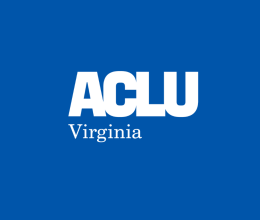
Virginia Fusion Center formed in 2005 to compile data on Virginians from multiple sources.
Richmond, VA -- The American Civil Liberties Union today released a report outlining serious concerns about new institutions called “fusion centers,” which have been created in over 40 states around the nation, including Virginia. Fusion centers vary widely, but generally are intended to improve the sharing of anti-terrorism intelligence among state, local and federal government agencies and the private sector.
“The ACLU report reveals that fusion centers lack oversight, boundary-setting, and checks and balances, which are crucial to protecting the rights of innocent Americans,” said ACLU of Virginia Executive Director Kent Willis. “There is a long history of local and federal law enforcement agencies abusing their domestic spying powers. The Virginia legislature – as well as Congress – must lift the cloak of secrecy surrounding these centers, to make certain they are acting within the law, and that they aren’t pursuing an ineffective, wasteful, dragnet approach that is diverting Virginia’s resources away from the basic law enforcement needs.”
The Virginia Fusion Center was established in 2005 and is a cooperative effort between the Virginia State Police and the Virginia Department of Emergency Management. It is staffed by both. Representatives of the Virginia National Guard and the FBI also staff the center. VFC compiles data on individuals living in Virginia by accessing data from federal, state and local agencies, the military, and private industry.
While the ACLU agrees that the ostensible purpose of fusion centers – improving the sharing of anti-terrorism intelligence among different levels and arms of government – is legitimate and important, taken as a whole, fusion centers raise serious questions about privacy and effectiveness.
The ACLU report identifies five problems with fusion centers as they currently exist:
- Ambiguous Lines of Authority. Overlapping jurisdictions create the potential for manipulation of differing laws to evade accountability.
- Private Sector Participation. Fusion centers are incorporating private corporations into the intelligence process, further threatening privacy.
- Military Participation. Fusion centers are involving military personnel in law enforcement activities in troubling ways.
- Data Mining. Federal fusion center guidelines encourage wholesale data collection and manipulation processes that threaten privacy.
- Excessive Secrecy. Public oversight, individual redress and the very effectiveness of fusion centers are threatened by excessive secrecy.
The ACLU of Virginia will ask the Virginia General Assembly to amend the state code (§52-47, establishing the state fusion center), to include a process by which an independent panel will annually measure the effectiveness of the fusion center, determine if the collection of data invades the privacy of Virginia’s citizens, and issue a public report.
“Investigators for the ACLU say that the Virginia Fusion Center appears to be more accountable and open than most, but the truth is we know very little about it,” added Willis. “There ought to be a way for the VFC to accomplish its objectives and at the same time be open and forthcoming about its operations. That’s how good government works.”
A copy of the ACLU’s report can be found online at http://www.aclu.org/fusion.
Contact: Kent Willis, Executive Director, ACLU of Virginia, 804/644-8022


